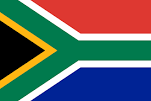 The South African VAT Calculator
The South African VAT Calculator
What Is VAT?
VAT stands for Value Added Tax. It is an indirect Tax on the consumption (or use) of goods or services.
SARS levies this tax by making it a requirement that certain businesses register and then charge VAT on the taxable supplies of their goods and services. In this way VAT registered businesses become vendors that act as the agent for government (SARS) in collecting the VAT.
VAT is charged at each stage of the production and distribution process and it is proportional to the price charged for the goods and services. You can think of it as every time there is “value added” then Value Added Tax (VAT) will apply.
The South African Revenue Service has set the VAT rate in South Africa at 15% from 1 April 2018 (it was previously 14%.) That means that 15% of a sale price of a product or service needs to be paid in the form of VAT. Check how South Africa's VAT rate compares to other countries around the world.
Note that, if the price quoted on an item does not mention VAT, then that price is deemed to include VAT. In other words, if an items price does not include VAT, then it needs to be explicitly stated that the cost is excluding VAT.
VAT forms an important part of the revenue of the Government. The below picture shows that 23% of the country’s tax revenue comes from VAT.

Most goods and services have VAT levied on them. VAT also applies to the importation of goods and is collected by South African customs.
There are some good and services which are exempt from VAT or which are subject to VAT at a zero rate. However the list of goods and services is very limited.
The South African Treasury Department keeps a record of goods and services not charged VAT.
These include:
- 19 basic food items
- Financial Services
- Residential rental accommodation
- Public and rail transport
- Precious Metals
- Exports
- International Transport Services (for example a plane ticket from Johannesburg to Harare)